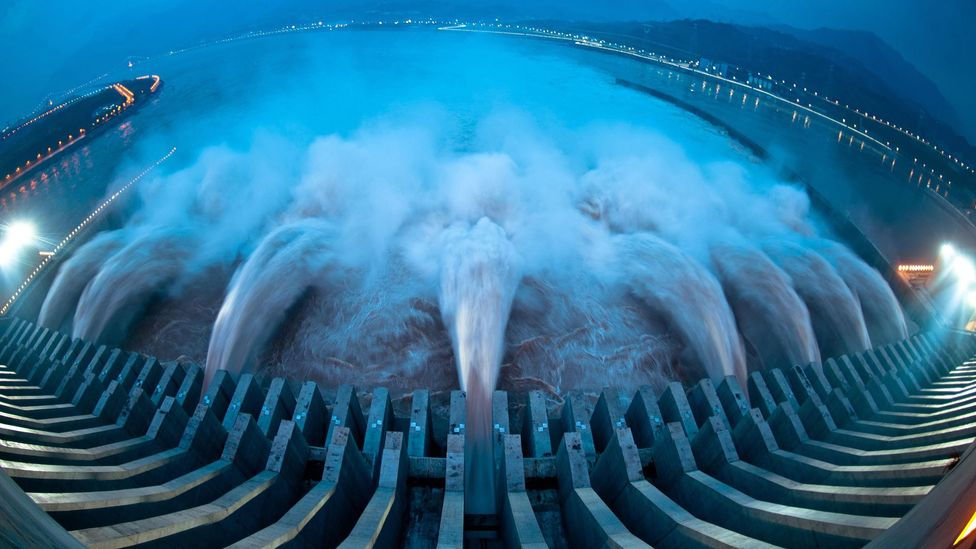
In a world increasingly conscious of climate change's impacts and the urgency to move beyond fossil fuels, the global energy panorama is swiftly undergoing a metamorphosis. As the consequences of climate change become more evident, the pursuit of sustainable and reliable energy sources has taken on an imperative urgency. Amidst the array of emerging solutions, hydraulic energy, derived from the power of water, presents a promising avenue to usher in a more eco-friendly and sustainable future.
At the core of hydraulic energy, also recognized as hydroelectric energy, lies the potential inherent in moving water. This involves capturing the kinetic energy present in flowing or descending water to produce electricity through hydropower plants. What's truly remarkable is that this process not only exhibits environmental friendliness, characterized by minimal emissions of greenhouse gasses, but also offers a host of advantages that position it as a dependable energy source for the times ahead.
Unlike finite fossil fuel reserves, hydraulic energy benefits from an inexhaustible supply facilitated by the perpetual water cycle. This grants it the status of an enduring and renewable resource, holding the potential to energize future generations. While fossil fuels contribute substantially to greenhouse gas emissions, hydraulic energy provides a stable and sustainable power source that aligns seamlessly with our pursuit of a cleaner planet.
Curbing Greenhouse Gas Emissions
In a world striving to reduce carbon footprints, hydraulic energy emerges as a prominent alternative. By generating electricity without the need for fossil fuel combustion, it considerably diminishes emissions of greenhouse gasses, positioning it as a significant contributor in the battle against global warming. This environmentally conscious attribute ensures that hydraulic energy actively participates in mitigating the repercussions of climate change. Hydroelectric power plants transcend mere energy production; they double as energy storage facilities. During periods of diminished electricity demand, surplus energy can be employed to pump water into elevated reservoirs. Subsequently, when electricity demand spikes, the stored water is released, driving turbines and yielding electricity with efficiency. This storage capacity offers a pragmatic remedy for addressing fluctuating energy requirements.
The roots of climate change are deeply entwined with excessive emissions of greenhouse gasses. The resultant consequences, encompassing surging sea levels, extreme weather events, and the meltdown of ice masses, pose formidable threats to ecosystems and societies. Hydraulic energy, with its clean energy generation, can play a substantial part in reducing carbon emissions by replacing fossil fuel-dependent power plants.
Balancing the Renewable Energy Mix
In a world reliant on intermittent renewable sources like solar and wind power, hydraulic energy stands as a steadfast ally. Its capability to provide uninterrupted electricity ensures a harmonious blend of renewables capable of adapting to shifting energy demands. This stability contributes to the viability of a sustainable energy ecosystem.
Safeguarding Icebergs and Polar Regions
The degradation of polar icebergs is a direct consequence of global warming. Hydraulic energy plays an indirect role in preserving these icy giants. By curbing greenhouse gas emissions and slowing the advance of global warming, hydraulic energy bolsters the delicate equilibrium of icebergs and polar domains, safeguarding these vital ecosystems.
In a world grappling with the consequences of climate change, securing reliable and sustainable energy sources has assumed paramount importance. Hydraulic energy emerges as a beacon of hope, furnishing renewable energy production with minimal environmental ramifications. Through the harnessing of water's force, hydraulic energy can substantially contribute to mitigating climate change, preserving icebergs, and fostering a greener outlook for the forthcoming generations. As we transition towards a low-carbon economy, investment in hydraulic energy emerges as a pivotal stride towards ensuring a robust and sustainable planet.

Comments